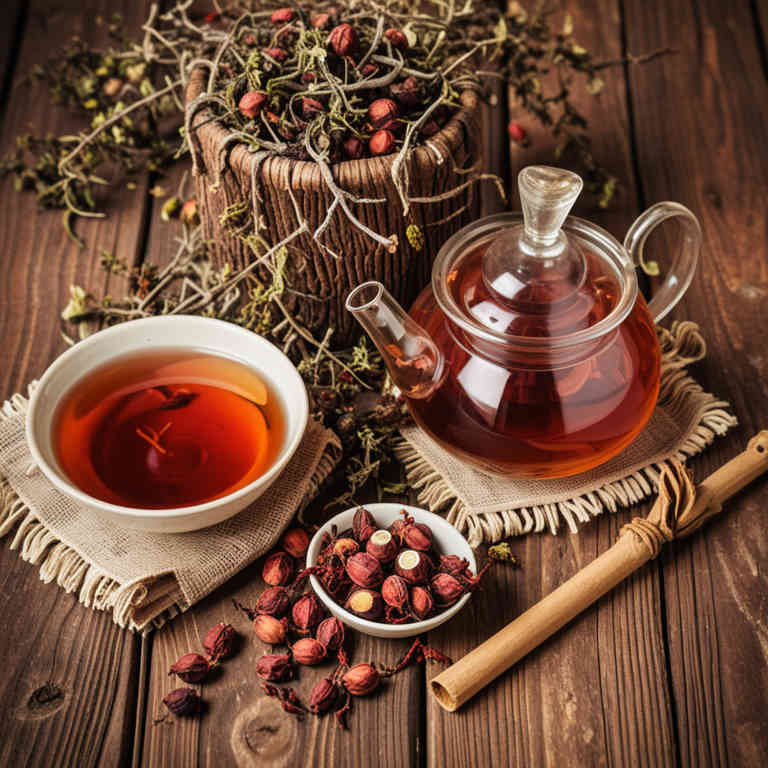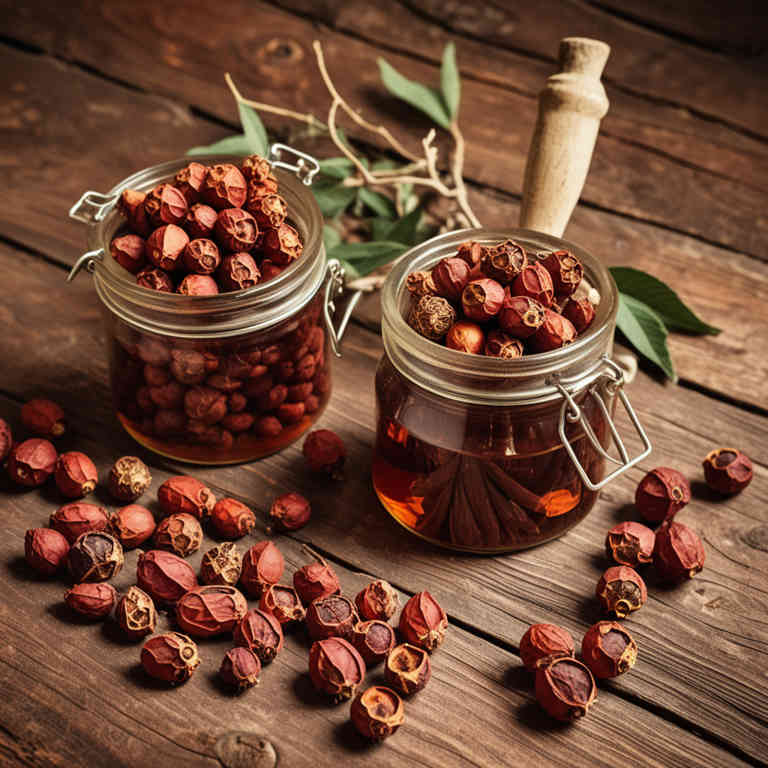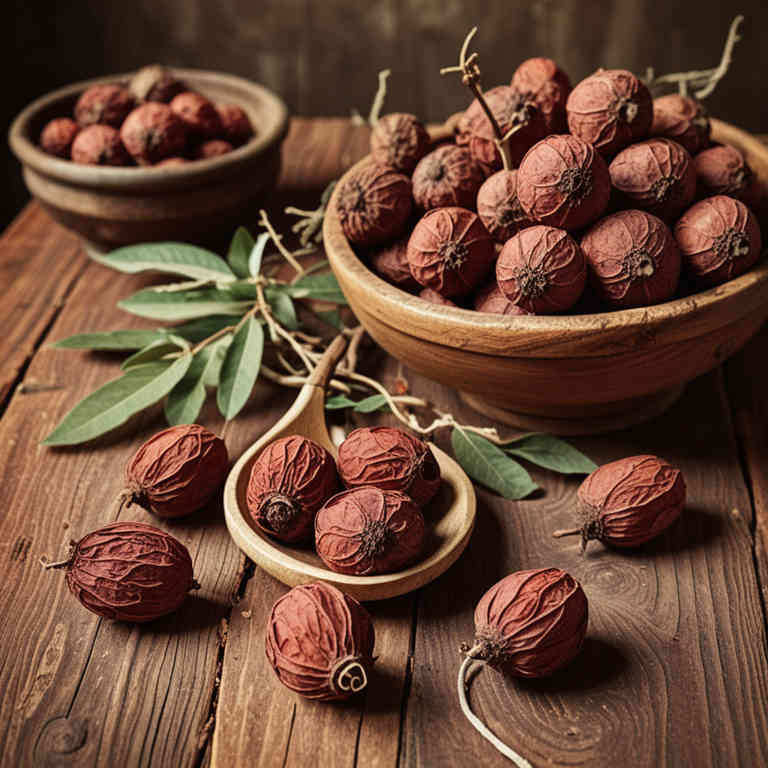10 Best Ziziphus Jujuba Preparations

The best medicinal preparations of Ziziphus jujuba are teas, decoctions, tinctures, capsules, and syrups, each offering unique benefits for health and wellness.
Teas made from dried fruits are commonly consumed to promote relaxation and improve sleep quality.
Decoctions involve simmering the fruit in water to extract its nutrients and active compounds.
Tinctures provide a concentrated form of the herb, often used for its calming effects.
Capsules and syrups offer convenient and consistent dosing, making them popular choices for daily use.
Below there's a list of the 10 best herbal preparations of ziziphus jujuba for medicinal purposes.
- 1. Teas
- 2. Decoctions
- 3. Tinctures
- 4. Capsules
- 5. Syrups
- 6. Mucillages
- 7. Lozenges
- 8. Oils
- 9. Creams
- 10. Linctuses
1. Teas
Ziziphus jujuba teas is commonly used to promote relaxation, improve sleep quality, and alleviate anxiety-related symptoms.
This herbal preparation is often employed to treat insomnia, nervousness, and stress-related conditions due to its calming effects on the nervous system. The bioactive constituents responsible for these medicinal properties include saponins, flavonoids, polysaccharides, and phytoestrogens, which contribute to its sedative, antioxidant, and neuroprotective effects. Additionally, it may help regulate blood sugar levels and support digestive health.
Its traditional use in Chinese medicine highlights its role in balancing the body's energy and enhancing overall well-being.

2. Decoctions
Ziziphus jujuba decoctions is commonly used to promote relaxation, improve sleep quality, and alleviate anxiety-related symptoms.
This herbal preparation is widely employed in traditional medicine to treat insomnia, restlessness, and nervous disorders. The decoctions are also used to address digestive issues, such as nausea and stomach discomfort, and to support overall vitality. The bioactive constituents responsible for these effects include saponins, flavonoids, polysaccharides, and alkaloids, which exhibit sedative, antioxidant, and immunomodulatory properties.
These compounds work synergistically to enhance the body's natural healing processes and balance physiological functions.

3. Tinctures
Ziziphus jujuba tinctures is commonly used to promote relaxation, improve sleep quality, and alleviate anxiety-related symptoms.
These tinctures are often employed in the treatment of insomnia, nervousness, and stress-related disorders. They are also used to support cardiovascular health and reduce symptoms of restlessness. The bioactive constituents responsible for these effects include saponins, flavonoids, polysaccharides, and amino acids.
These compounds contribute to the herb's calming, antioxidant, and neuroprotective properties.

4. Capsules
Ziziphus jujuba capsules is commonly used to promote relaxation, improve sleep quality, and reduce anxiety.
This herbal preparation is often employed to treat insomnia, restlessness, and nervous disorders due to its calming effects on the central nervous system. The most common medicinal uses include alleviating symptoms of stress, enhancing mood, and supporting overall mental well-being. The bioactive constituents responsible for these effects include saponins, flavonoids, polyphenols, and amino acids, which contribute to its sedative and antioxidant properties.
These compounds work synergistically to modulate neurotransmitter activity and reduce oxidative stress in the body.

5. Syrups
Ziziphus jujuba syrups is commonly used to promote relaxation, improve sleep quality, and alleviate symptoms of anxiety and insomnia.
These syrups are often prescribed for their calming effects, making them useful in treating conditions such as restlessness, stress-related disorders, and nervous exhaustion. The bioactive constituents responsible for these medicinal properties include saponins, flavonoids, polysaccharides, and amino acids, which contribute to the plant's anxiolytic, sedative, and neuroprotective effects. Additionally, the presence of phytoestrogens may support hormonal balance and overall well-being.
This herbal preparation has been traditionally used in Chinese medicine for centuries to address a wide range of health issues related to the nervous system and emotional well-being.

6. Mucillages
Ziziphus jujuba mucillages is commonly used to promote sleep, reduce anxiety, and support digestive health.
This herbal preparation is often employed to treat insomnia, restlessness, and gastrointestinal disorders such as ulcers and inflammation. The mucillages contain bioactive constituents like polysaccharides, flavonoids, and saponins, which contribute to its calming and healing effects. These compounds help regulate neurotransmitter activity and exhibit anti-inflammatory and antioxidant properties.
As a result, Ziziphus jujuba mucillages are valued in traditional medicine for their soothing and therapeutic benefits.

7. Lozenges
Ziziphus jujuba lozenges is commonly used to alleviate symptoms of insomnia, anxiety, and stress-related disorders due to their calming effects on the nervous system.
These lozenges are also used to treat respiratory conditions such as coughs and sore throats, as they have antiseptic and anti-inflammatory properties. The most common medicinal uses include improving sleep quality, reducing irritability, and supporting overall mental well-being. Bioactive constituents such as saponins, flavonoids, and polysaccharides contribute to the herb's medicinal properties by exhibiting antioxidant, sedative, and immunomodulatory effects.
These compounds work synergistically to enhance the therapeutic benefits of the lozenges.

8. Oils
Ziziphus jujuba oils is commonly used to promote relaxation, improve sleep quality, and alleviate symptoms of anxiety and insomnia.
This herbal preparation is often employed to treat ailments such as restlessness, nervous tension, and sleep disorders. The bioactive constituents responsible for its medicinal properties include saponins, flavonoids, and polyphenols, which possess antioxidant and calming effects. These compounds contribute to the oil's ability to modulate the nervous system and reduce stress.
Additionally, the oil may support cardiovascular health and enhance overall well-being.

9. Creams
Ziziphus jujuba creams is commonly used to alleviate symptoms of skin conditions, promote wound healing, and reduce inflammation.
These creams are often applied topically to treat eczema, psoriasis, and minor burns due to their soothing and regenerative properties. The most common medicinal uses include addressing skin irritations, reducing redness, and supporting the healing process of damaged skin. The bioactive constituents responsible for these effects include saponins, flavonoids, and polyphenols, which possess antioxidant, anti-inflammatory, and antimicrobial properties.
These compounds work synergistically to enhance skin health and provide therapeutic benefits.

10. Linctuses
Ziziphus jujuba linctuses is commonly used to soothe coughs and respiratory discomfort by acting as a demulcent and expectorant.
This herbal preparation is frequently employed to treat ailments such as bronchitis, asthma, and other respiratory conditions characterized by dry or productive coughs. The bioactive constituents responsible for its medicinal properties include saponins, flavonoids, polysaccharides, and essential oils, which exhibit anti-inflammatory, antimicrobial, and bronchodilatory effects. These compounds help reduce irritation in the respiratory tract and promote the expulsion of mucus.
Additionally, the presence of zinc and other minerals may support immune function and tissue repair.
